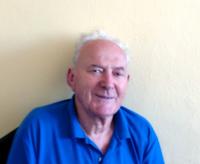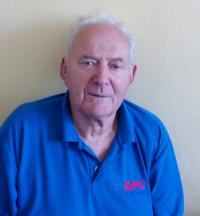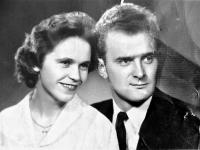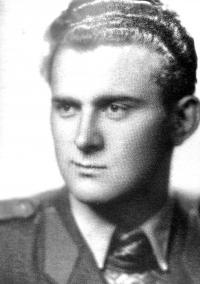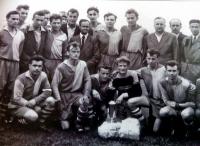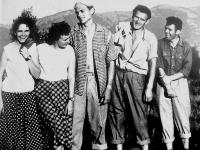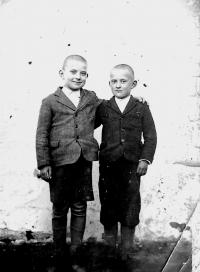Majority of activities the communists did was just a political camouflage

Download image
Michal Kurucár was born on June 6, 1934 in Bojná. He comes from an agricultural and faithful Christian family. He witnessed crossing of the front and placement of Romanian and Soviet Army soldiers in their village. In Bojná he attended the elementary school and continued at the municipal school ran under the patronage of Brothers of the Christian Schools of St. Jean-Baptiste de La Salle. Later he was transferred to the municipal school in monastery of Brothers Consolers of Gethsemane. That´s where he lived to see the occupation of the monastery by armed forces during the “Barbarian Night” of April 13 - 14, 1950, followed by the forced deportation to concentration monasteries in Podolínec, Bajč, and Kostolná. Later on he was assigned to forced labour at building the former Priehrada mládeže (Youth Dam; today the Nosice Dam). After being released, he attended a wood-processing training for one year, and in 1955 he graduated at the Secondary Specialized School of Woodworking in Liptovský Hrádok. After the graduation he began working at the Drevina Company in Turany, where he stayed during his whole professional life. He got married in 1958. Since 1992 Michal Kurucár lives in retirement with his wife Anna Kurucárová, née Tuková.
